TIFF '25 Day Two
A few words about meditating
So, I headed into Day Two of TIFF on very little sleep. Three hours or so, never mind that it was the same story two nights in a row. I can’t remember ever starting the festival so tired, and as a result, I made some changes to my plans. I’d wanted to get up and attend the P&I screening of Olivier Assayass’s new film, The Wizard of the Kremlin, but the thought of a 150-minute movie at 8:30 in the morning… Daunting. And the fact that early word was pretty negative? Yeah. So, I rested a bit more—though I was already up—taking my time to do some work and collect myself.
Last year, when I spend a few months in Thailand, in Phuket, I stayed for three nights at a nearby temple in the mountains. Anyone who knows me will know I am in no way a spiritual person, let alone religious. I’d also never meditated before, not properly at least. But for several days, I got up each morning at around 3:30 for a 4 a.m. meditation session, spending much of the rest of the day on my own in a small cabin with a simple mat for a bed and not much else except some books. There was the food ritual in the morning, where locals brought offerings up the mountain to share in a meal with the monks, and some general upkeep work to help out with during the day, but for much of the rest of the time it was pleasant, quiet seclusion. Then, at night, there would be another, longer meditation session.
I can’t say I came close to mastering the art, but I was able to reach some level of meditative state given the environment, my inability to communicate with just about anyone there in English, and a simple focus on my slow breathing. I may not believe in Buddhism, but the benefits of meditation in simply calming my naturally anxious state even slightly were clear. Since then, I’ve tried multiple times to get into a good enough rhythm for meditation, but haven’t found it, and I’m not disciplined enough, I suppose, to persist in trying consistently. Sometimes, though, movies do the trick.
I had a couple of options, having decided to skip The Wizard of the Kremlin. In the end, I landed on Pete Ohs’s Erupcja, most notable for being one of the films at the festival starring Charli XCX. It also had another, even more base appeal: the movie is only 70 minutes long. It’s not the shortest 70 minutes, I’ll say that. A very light-touch, somewhat French New Wave-influenced film about the end of multiple intersecting relationships in Warsaw, it is the sort of inoffensive international picture that I had a lot of tolerance for, while also admitting it’s not exactly good, and I likely won’t remember it exists in a few years. For those wondering, Charli acquits herself well as an actress. She carries a chunk of the film, and does so well, with enough care of craft to sell the emotional reality of the character, and the rest backed up by her natural charisma. Not a movie star, but a star.
The film centres primarily on a little love triangle between Charli’s character, Bethany, and her boyfriend, Rob, who has brought her to Warsaw, the city she claimed was the most romantic she’d been to, in order to propose, and Nel, a local woman working at a flower shop with whom Bethany has had a long tumultuous kind of relationship. There’s a simplicity in how these characters and relationships are drawn. You know where things are going right away—Rob’s overbearing affection masks unattended but nonetheless clear fears that he’s about to lose his love. As the three characters’ interests begin to intermingle and lead to the end of something, we come to learn that Bethany and Nel have a longstanding, shared superstition. Every time they meet, you see, a volcano erupts. And this signals that they will break up with their partners. It’s a cute setup, and it works well enough, but the film doesn’t ever lift itself beyond the setup. What it reaches for is serenity, a peace in the idea that love sometimes ends, and that’s okay. I agree, but there’s a lack of tension in the approach, and an overall slightness that leaves a nagging feeling that the film needed more. Not a bad movie, but as I said, not especially good either.
What I’ll say to its credit, though—or mine—is that I felt good about my decision to make Erupcja my first film of the day. It was a relatively relaxed movie, with a nice spirit about it, and it was short. I came out of a so-so movie feeling good.
Hanging around the festival area, I chatted up a storm with friends, by which I mean, a group of us spend a couple hours lodging complaints about everything from TIFF’s organization, to the problem of arts funding in Canada, to a dissection of director Ali Abbasi’s sometimes generative evilness (no, I cannot explain how we got to that one.)
I then made my way back to the Scotiabank Theatre to see Rhayne Vermette’s second feature, Levers. Her debut, St. Anne, ranks among the best, most exciting films of what has felt in some moments like a new wave of great, independent Canadian cinema. Vermette’s work is decidedly experimental. Hailing from Manitoba, the Métis filmmaker has used 16mm film to explore local communities in abstracted terms. I had imagined that with her second film, she’d go in an even more narrative direction than she had in her debut. That was not the case at all. To the extent that I understood what was going on in Levers, it was that this small town was cast, seemingly by magic, under a spell of perpetual darkness. Other than that, I experienced the film largely as a succession of gorgeous images that feel as though they are about to slip into an abyss of black. It became, unintentionally, something like a meditative experience. My breathing settled as the mysterious sights and sounds washed over me, the beauty, for all my lack of understanding, reaching my soul. I came out baffled, but entranced by Vermette’s ability to affect a mood and in love with those images.
From there, it was off to Wavelengths 1, the first of TIFF’s experimental shorts programmes this year. It featured the wonderful “Ten Mornings Ten Evenings and One Horizon,” the 2016 film by the late Tomonari Nishikawa, along with Viktoria Schmid’s “Rojo Žalia Blau,” Sohrab Hura’s “Disappeared,” Jorge Caballero and Camilo Restrepo’s “09/05/1982,” Chan Hau Chun’s “Map of Traces,” and Vadim Kostrov’s “En Traversée.” The selections fit together well stylistically, and continued my calm, meditative streak for Day Two. Among them, two were most notable. “Rojo Žalia Blau” takes a series of shots of nature, overlapping images over one another, with their colour shifted, creating what at first looked almost like an anaglyph 3D effect, but soon looked more like images split through a prism into rainbows. Gorgeous and fascinating to contemplate. “Disappeared,” features a long, ominous, incredibly digitally degraded shot of a tent in a forest. We watch it for a while, until things begin to happen, though not much really does. It’s the film’s final moments, a punchline of sorts, that pulls everything into focus, including the film’s intentions, and it’s both funny and unnerving.
I should also say some words about “09/05/1982,” a short about political unrest in Mexico at that time, which at the very end reveals itself to have been crafted out of images and videos generated using AI. Some will categorically reject this, because AI, but I don’t quite take the view of the technology, despite my extreme skepticism of its value, and even worse fears about its effects. Particularly in the space of experimental cinema, I think there is a place for exploring how AI functions within an artistic space, if it functions at all. This is a film that directly asks that question, but using it to depict once very real, dire political circumstances. That its too smooth surfaces cannot actually capture in meaningful detail how those circumstances looked and felt seems a part of the intention, but ultimately glib, which is maybe the true natural state of so-called generative LLMs. Not exactly the stuff of good art.
Despite all that induced meditation, I desperately needed a nap. So I went home, took a solid 45, attended to some work, before running out again to see Alexandre Koberidze’s new feature Dry Leaf. I had not seen the Georgian filmmaker’s previous work, but had heard sky-high praise for this one, so I went in excited, and knowing absolutely nothing about it, except that it was apparently shot on low-quality digital cameras. That would be underselling how shitty the digital imaging is here. Blown up onto a big screen, it was a blurry, blocky mess, lacking in any ability to resolve fine—or even less than fine—detail. It tells the story of Irakli, a man whose daughter, a photographer, has essentially run away while working on a project to photograph villages around the country and their football fields.
Irakli heads out on the road with a literal phantom friend—as in, we see him having conversations with a person who is not there, but whose voice we hear—to retrace his daughter’s journey across the country, stopping everywhere with a football field or stadium, asking locals if they’ve seen his daughter. Over the course of three hours, we watch this process play out, slowly and without real incident. Locations seem to bleed into each other, and as my mind naturally wandered, I’d sometimes lose track why Irakli was in any given place at any given time, before remembering that it doesn’t really matter. Goalposts, fields, mountains, trees, cows—lots of cows—dogs, kids, old men and women. These are the sights that make up Dry Leaf, which becomes a portrait of a beautiful landscape and decaying old society of village life. The terrible digital imaging is nonetheless beautifully composed, and often hints at the theoretical beauty that might be had, were the cameras better. Very quickly, though, these hints are subsumed into the images themselves, which start to feel painterly. I found myself sinking in, once again getting to a meditative place as the smeary sights of a beautiful countryside led the way. A late sequence at a car wash is arresting in its visual abstraction. It all culminates in an impossibly simple and moving ending. It is, so far, the film of the festival.
Previous:


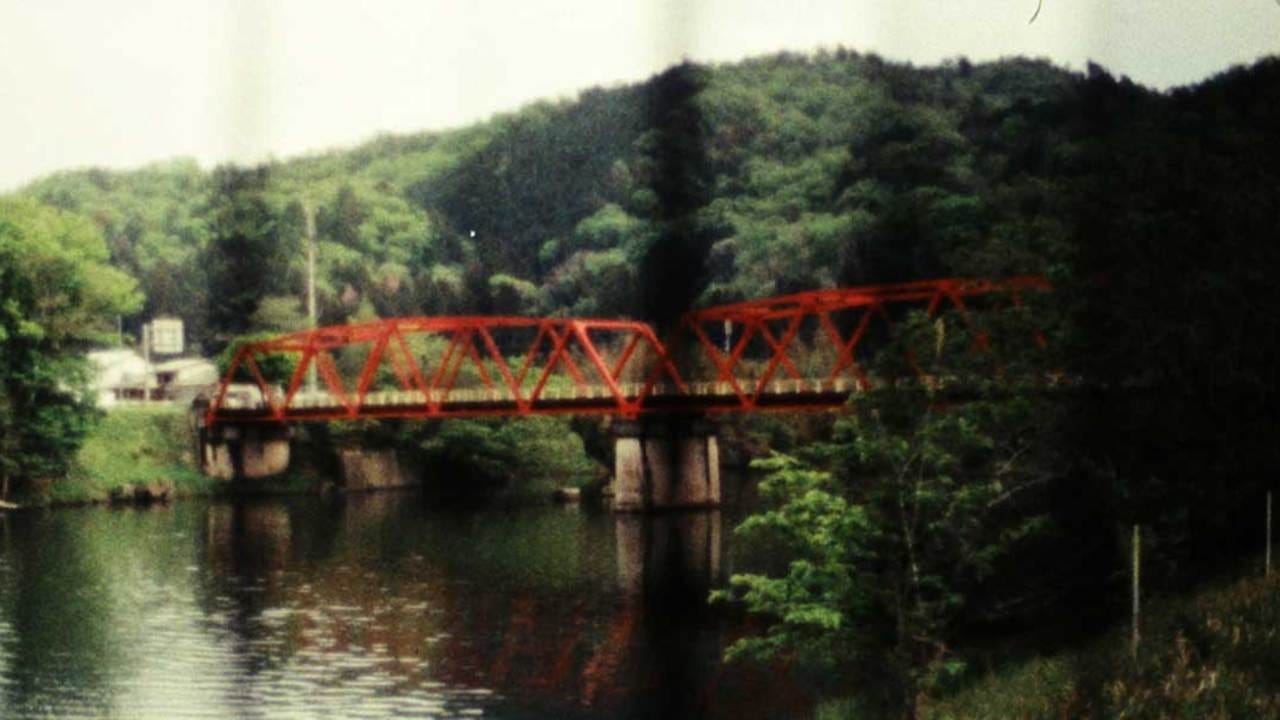
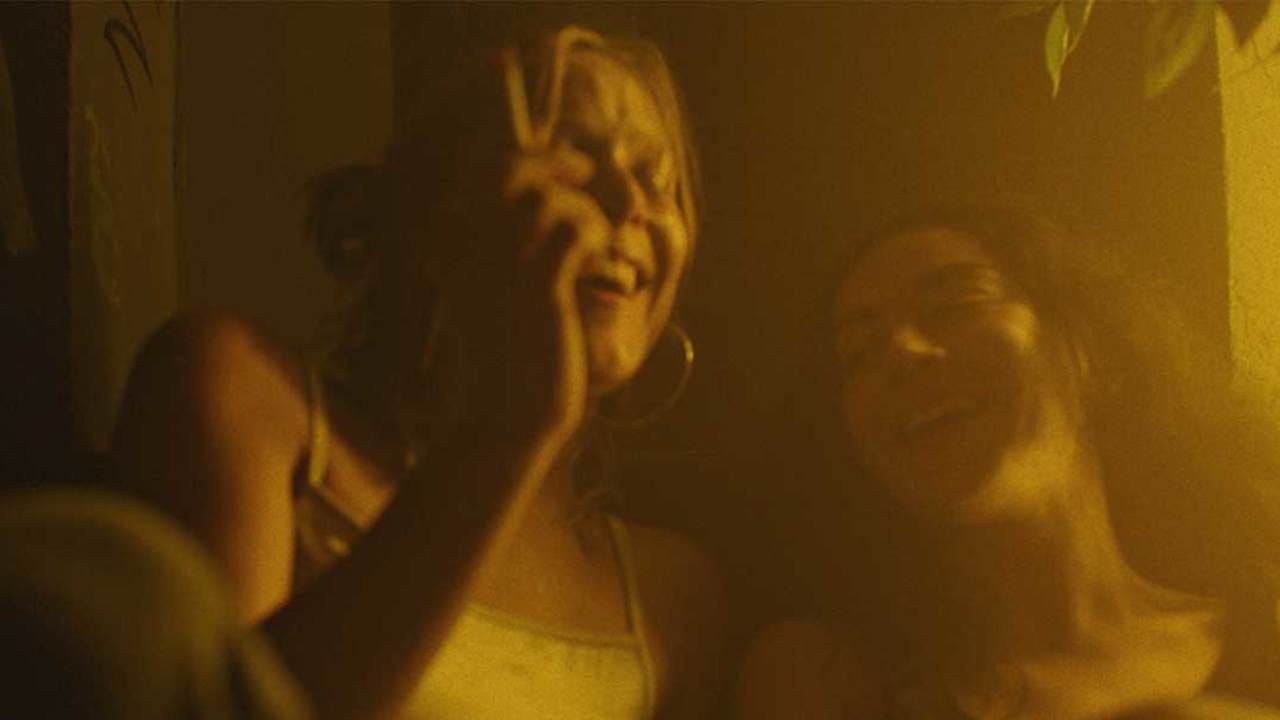
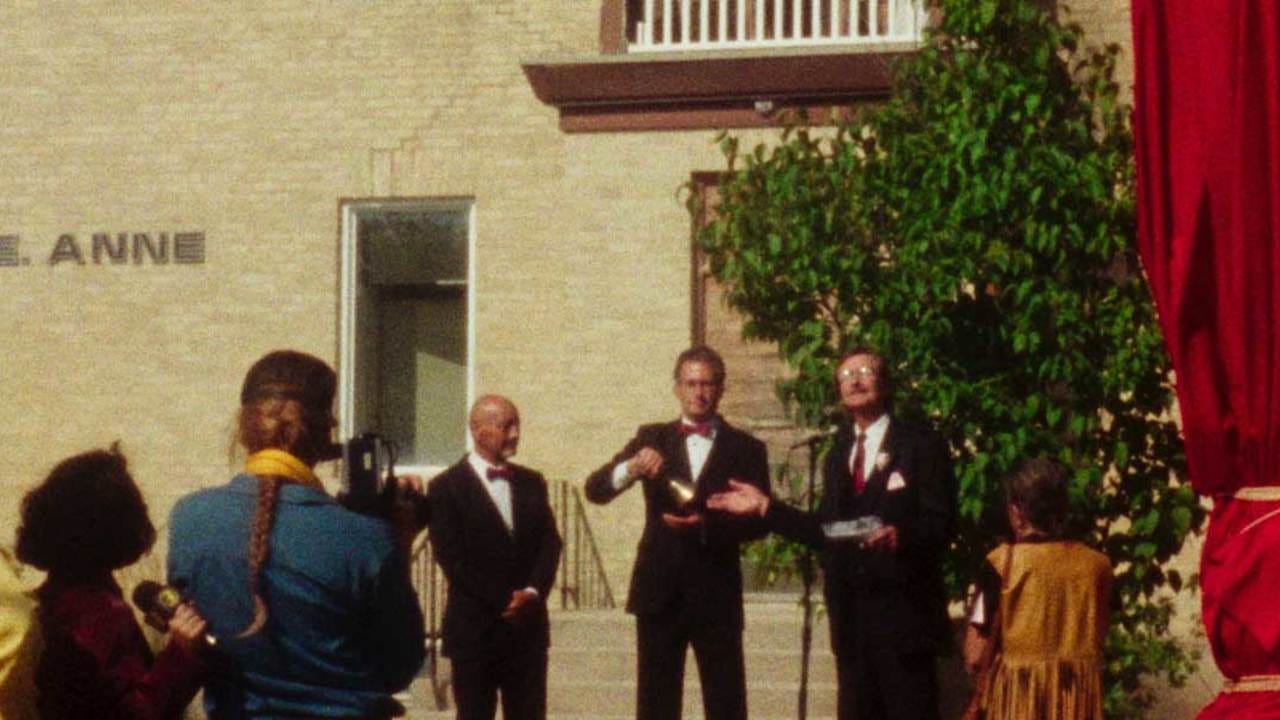
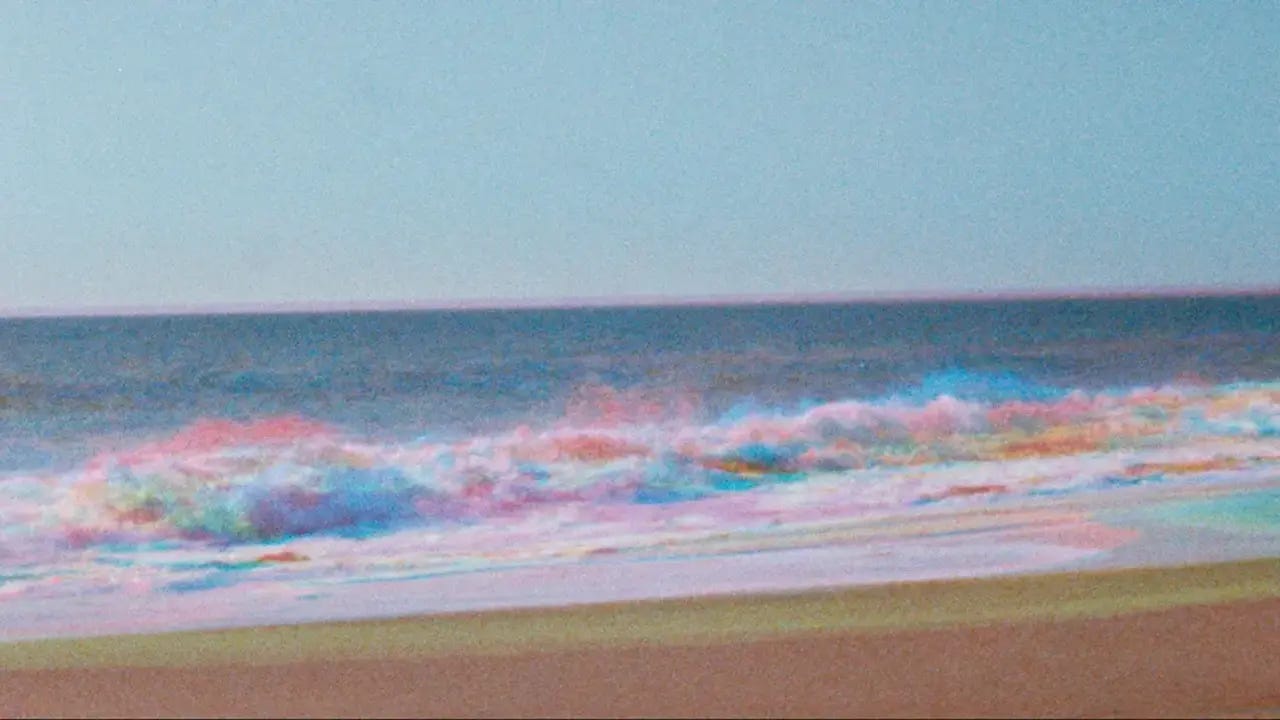
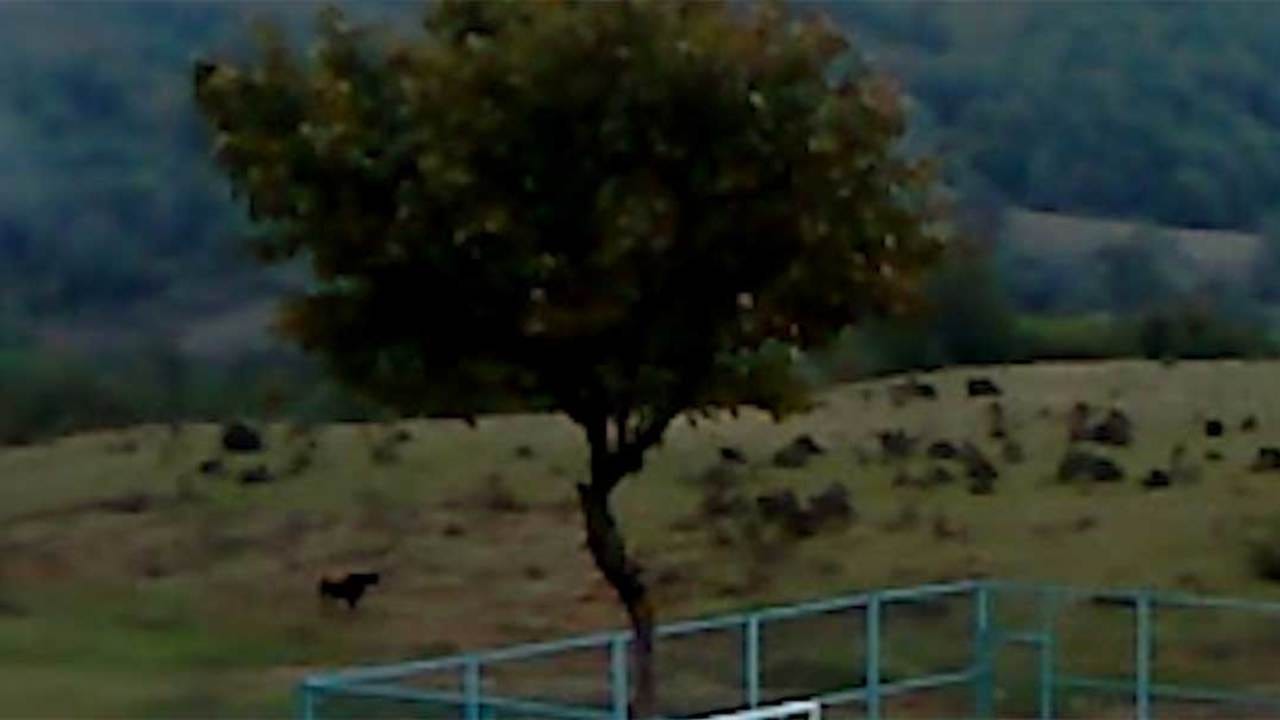
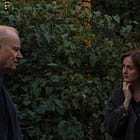
I enjoy reading these every year! Just a small note: the boyfriend character in Erupcja is named Rob, Claude was American artist living in Poland played by Jeremy O. Harris.